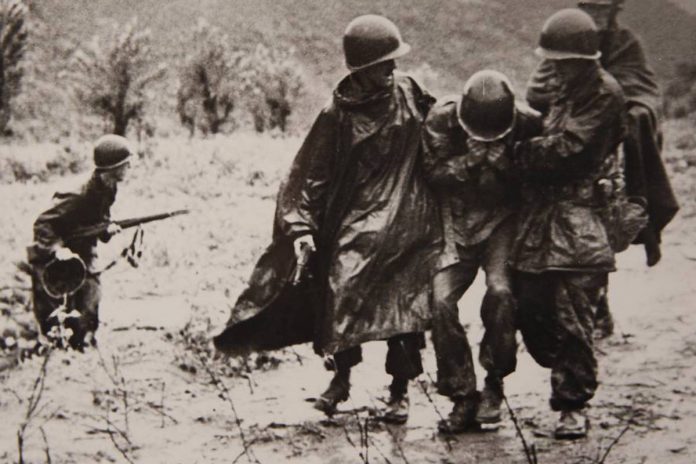Reflection for the 7th Sunday in Ordinary Time (Cycle C)
Who is my enemy? Why and how is this-or-that particular person my enemy?
These questions are most often asked and answered within a self-delineated context, which means “my enemy” is another person imagined to belong to a level or boundary beyond what is individually considered as the limits of perceived security. Within such levels or boundaries, acquaintances are ensured to be “my friends,” who are otherwise deemed helpful for and to our self-interests, or are at least non-threatening.
Therefore, who I define as “my enemy” is entirely relative; depending on the position in which I believe my protection is ensured. “My enemy” may not necessarily be “your enemy” which may explain why Abishai mistakenly thought Saul to be David’s enemy as worthy of killing. “My enemy” is not necessarily everybody’s enemy; certain people do not and cannot be made to bear the public character of being everybody’s threat or menace to perceived security.
Perhaps this notion of “my enemy” has been very much corrupted by what is conceived and seen in mass media, where fictitious villains are superbly antagonistic that our perceptions of others are subtly distorted to a point that anyone who is “not like me” should not be trusted. In our suspicious minds, people are hence unfairly classified as either “truly evil” or “truly good” as if one cannot possibly evolve into the other. Consequentially, “I would refuse to associate with anyone who is ‘my enemy’ and ‘truly evil,’ and I will deal only with anyone who is ‘my friend’ and who ‘like me,’ is ‘truly good.'”
We are thus idolizing ourselves as the only protagonists in the drama of our own lives. It is much easier to comprehend a dichotomous social structure of “the good guys” where I belong; and “the bad guys” where the people I dislike or despise, belong. Such views are even more dangerous when we are already being deceived into the miscomprehensions that we can “never become bad” or we can “never be wrong;” or that those who do not measure up to our “standards,” can “never be good” nor can “ever be deserving” of us. These miscomprehensions may be at the root of faulty judgment and oppressive discrimination, the fundamental reasons why pride persists and not humility; why indifference dominates and not responsibility; why violence continues and not peace.
Fortunately, our world is not and cannot be reduced to such convenient simplifications; it is happily more chaotic than we think. “My enemy” is someone who is only different or strange, someone whom I cannot understand or do not wish to understand yet, the pitiful outcome of my own prejudices which if refined or reconfigured in some way, may change the way I view this other person. People actually change; “good friends” can turn into “evil enemies” because one’s genuine goodness can fall victim and succumb to extremely harsh circumstances which only they experience, that they turn to “evil” and to becoming perceived as “everybody’s enemy;” this implies that under the same circumstances, we the “good guys” can become “bad guys” as well. The reverse is also true; “evil enemies” can become “good friends” because with some substantial communal support, one’s genuine goodness is allowed to manifest itself anew.
This is how we can make sense of what the Christ taught about “loving our enemies.” We must learn to embrace differences and strangeness; to accept the reality of diversity, and the infinity of mystery. We must learn to discover the uniqueness of those who look different, who behave or conduct themselves differently, who think and feel in unfamiliar ways, who speak and act to disturb or even completely oppose what we thought to be correct or proper. We need to appreciate the multiple facets of our world, including the murkiness of the human condition that can turn the more fragile among us, into sinister social monsters.
Through such an appreciation – and graced with the charity of the Spirit, who is “slow to anger and abounding in kindness” – we are enabled to initiate for them a process of conversion founded on God’s mercy and compassion, which hopefully will transform them to become responsible citizens of the kingdom, and to bear one day with us “the image of the heavenly one.” This is a service that demands no payment, nor expects any return; a service done out of selfless love and a strong concern for true justice and social stability. These will be the fundamental reasons why humility will prevail and not pride; why responsibility will be nurtured and not indifference; why the peace of the kingdom and not the violence of this world will be achieved.
God “is kind toward the ungrateful and the wicked.” He dares us to do the same.
Brother Jess Matias is a professed brother of the Secular Franciscan Order. He serves as minister of the St. Pio of Pietrelcina Fraternity at St. Francis of Assisi Parish in Mandaluyong City, coordinator of the Padre Pio Prayer Groups of the Capuchins in the Philippines and prison counselor and catechist for the Bureau of Jail Management and Penology.
The views expressed in this article are the opinions of the author and do not necessarily reflect the editorial stance of LiCAS.news.









